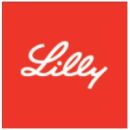Biopharma companies sit at the intersection of the biotech and pharmaceutical industries. They conduct research and testing to develop biopharmaceuticals, which are drugs derived from living organisms. Here are biopharma companies furthering healthcare treatment by using advanced technology and data-driven research to change the way medications and vaccines are made.
Top Biopharma Companies
- Novo Nordisk
- Pfizer
- Moderna
- Biogen
- Takeda
- Roche
- Merck
- Eli Lilly and Company
- Gilead Sciences
- Bristol Myers Squibb
Biopharma Companies to Know
Formation Bio builds technology to drive innovation throughout the drug development lifecycle. For example, the company offers a platform equipped with artificial intelligence capabilities that help researchers streamline their workflows and provide predictive insights to inform and speed up efforts to identify effective new treatments.
GRAIL is a healthcare company focused on early cancer detection. Its biopharmaceutical innovations in multi-cancer early detection, novel cancer therapeutics, liquid biopsy solutions and methylation have pushed the industry forward, making cancer detection more possible and accessible. Its copyrighted Galleri test uses machine learning to detect signals from over 50 types of cancer through a single blood draw.
Schrödinger is a scientific software company that creates computational tools for use in drug discovery and molecular sciences. Its biotech platform uses physics, machine learning and informatics to facilitate molecular properties predictions. The company partners with pharma companies including Bayer.
Novo Nordisk has spent more than a century establishing itself as a major player in the pharmaceutical industry, conducting research and trials worldwide to develop new medicines and therapeutics. The company has production sites in 16 different countries and research and development centers in 10 countries.
Pfizer has a global network of people, resources and technology to deliver drugs, vaccines and therapies for disease treatment, as well as prevention and overall wellness. Well-known medications like the antidepressant Zoloft and the antibiotic Zithromax are among the company’s product lineup. Pfizer’s partnership with biotech company BioNTech yielded the first FDA-authorized Covid-19 vaccine.
Moderna’s approach to medicine and vaccine development draws on the progress of mRNA science, which uses mRNA — or messenger RNA — to direct the body to produce proteins that can support the immune system, helping combat and prevent disease. Its mRNA platform has been used to develop a vaccine against Covid-19, and it’s also being used to develop therapeutics for diseases like cancer and cystic fibrosis.
Biogen is a biotech company developing treatments and medications for conditions like multiple sclerosis and spinal muscular atrophy. Its areas of focus for research and development include Alzheimer’s disease and dementia, Parkinson’s disease and other movement disorders, neuropsychiatry and specialized immunology. Biogen’s therapies are available in more than 80 countries, and the company has been working to ensure underrepresented patients are included in its clinical trials.
Japan-based biopharma company Takeda uses data and scientific innovation to drive pharmaceutical manufacturing. With 200-plus collaborations across the globe, the company’s R&D function centers around overcoming healthcare challenges in its four core therapeutic areas: oncology, rare genetics and hematology, neuroscience and gastroenterology. Takeda also produces more than 20 plasma-derived therapies and operates a network of plasma collection centers across the globe.
Swiss company Roche has been a fixture in healthcare for over a century, developing both pharmaceutical and diagnostic solutions. Each year, Roche’s medications are used to treat 28 million patients, while its array of in vitro diagnostics are used to test for medical conditions such as cancer and diabetes. The company has innovation centers in over a dozen countries, and it maintains hundreds of global partnerships.
Merck aims to innovate medicine and vaccine development with its product portfolio which includes vaccines to protect patients from measles, mumps, rubella and chickenpox. The company also has an oncology research division that covers a range of cancers from blood and lung to melanoma and gastrointestinal.
Eli Lilly is a pharmaceutical manufacturing company conducting research in over four dozen countries. It claims to be the first company back in the 1920s to commercialize insulin for treating and managing diabetes and now has products marketed in 120 countries. The company has launched a program to cap the out-of-pocket cost of its insulin at $35 per monthly prescription both for insurance holders and for people without insurance.
Gilead Sciences develops medicines and therapeutics for patients diagnosed with HIV, Hepatitis C and other viruses. The company is responsible for VEKLURY, a medication commonly known as remdesivir, which is used to treat hospitalized or high-risk Covid-19 patients. Gilead’s Patient Assistance Program has allowed thousands of people without insurance to access its treatments for free. The company has also launched programs to help people in low- and middle-income countries get access to medicines and healthcare.
Bristol Myers Squibb is a biopharma company with a focus on research in immunology. The company’s pipeline of testing for new drugs covers more than 40 different disease areas. To further its strategic goals, Bristol Myers Squibb has partnered with several big-name pharmaceutical companies like Janssen Pharmaceuticals and Pfizer.
U.S.-based Asimov is a biopharmaceutical company that utilizes machine learning, computer-aided design and synthetic biology to develop therapeutics. With offices in Boston, Massachusetts, and Boulder, Colorado, in-office employees benefit from commuter perks and company-sponsored events.
Prolaio, a company acquired by Kardigan Bio in 2025, is focused on transforming how new cardiovascular therapies are developed and delivered. The company's technology platform collects continuous heart health data from wearable and in-home devices, which is then analyzed by Prolaio's software to provide clinical insights that are useful for both patient care and the design of clinical trials.



















